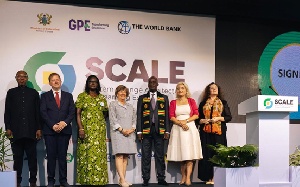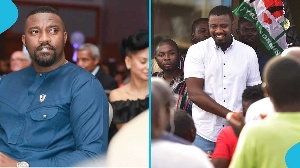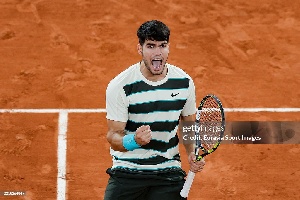Business News of Tuesday, 3 June 2025
Source: www.ghanawebbers.com
US$118.8m new funding to improve learning outcomes in schools
The new funding will support the Ghana Accountability for Learning Outcomes Project (GALOP). This government-led initiative aims to improve literacy, numeracy, and classroom instruction in low-performing schools.
This investment is part of a co-financing mechanism called SCALE. SCALE pools resources from private donors and development partners. It builds on a previous US$38.8 million grant and additional support from the Global Partnership for Education (GPE).
Philanthropic partners include the Jacobs Foundation, UBS Optimus Foundation, and Fondation Botnar. The announced US$40 million is reportedly the largest sum raised globally for education by private partners. This amount has been matched by GPE’s Multiplier Fund, totaling US$80 million.
Together with earlier grants, the total investment reaches US$118.8 million. This funding will enhance teacher training and expand access to learning materials. It will also strengthen school safety and promote children's emotional wellbeing.
SCALE focuses on evidence-based interventions to improve Ghana’s education system at all levels. Ghana's education system faces challenges like teacher shortages and low foundational learning outcomes. Since 2020, GALOP has targeted over 10,000 schools with teacher training and performance monitoring tools.
The latest funding supports GALOP's new phase: GALOP Additional Financing 2. This phase will scale interventions to all public schools nationwide. Resources will train teachers and provide learning materials in rural areas.
Education Minister Haruna Iddrisu expressed excitement about this development. He believes Ghana can be a model for other African countries in financing education through private sector partnerships.
Iddrisu noted that GALOP has positively impacted foundational literacy and numeracy. He emphasized early childhood development as crucial for long-term success.
SCALE aims to reform how education is structured and delivered using child-centered approaches. It seeks to create thriving learning environments for children.
In addition to school reforms, SCALE funds the Communities of Excellence program in many districts. This initiative empowers local communities in educational decision-making processes.
These efforts coincide with ongoing attempts to tackle child labor in West Africa’s cocoa sector. An estimated 1.56 million children in Ghana and Côte d’Ivoire work on family-run cocoa farms.
SCALE will also establish a Ghana Education Evidence and Data Lab (GEEDLab) within the Ministry of Education. This lab aims to improve evidence-based policymaking and planning.
Since 2020, GALOP has invested US$218.7 million into selected districts. Over four years, new funding will increase beneficiary schools from 10,000 to 16,000 along with 14,700 kindergartens.
The funds will support targeted reforms to improve teaching quality and governance systems in schools.
Simon Sommer from Jacobs Foundation stated that this partnership offers expertise alongside financial commitment for education transformation.
Tom Hall from UBS Optimus Foundation highlighted that collective giving maximizes impact through coordination among partners.
Andrea Studer from Fondation Botnar stressed that education must support holistic development beyond academics, including wellbeing skills like empathy and resilience.











